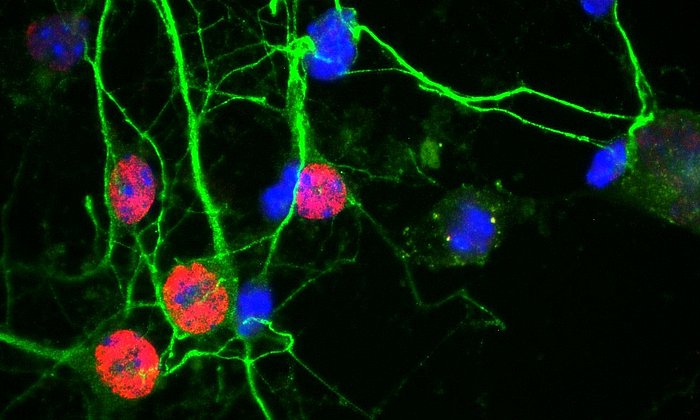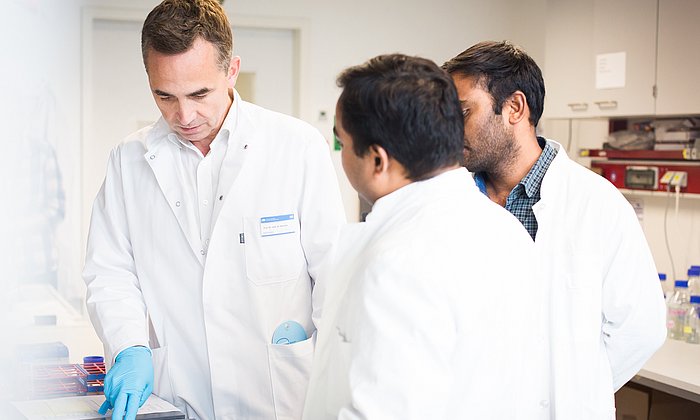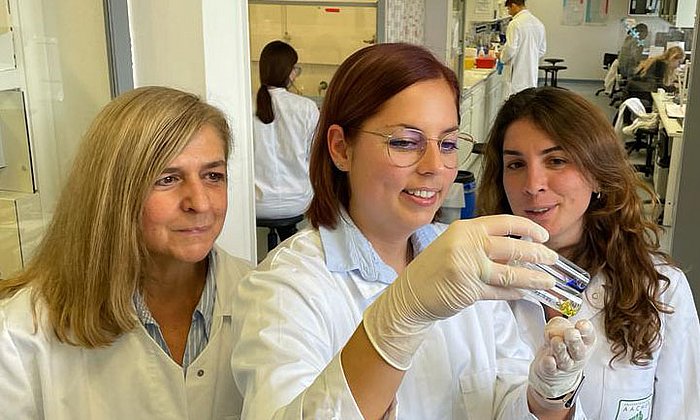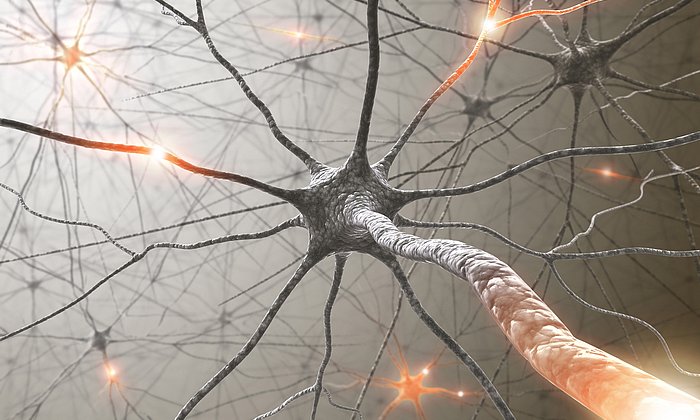TUM study shows promising therapeutic approach
Stopping and reversing Alzheimer's at an early stage

The study was published in the renowned journal "Nature Communications". The results obtained on mice in the laboratory indicate that neuronal dysfunctions could even be repaired. The researchers hope that the protein they investigated, which experts call amyloid-beta-binding anticalin (H1GA), can halt the progression of the severe neurodegenerative disease at an early stage.
According to experts, there are an estimated 55 million people worldwide living with dementia, and most of them have Alzheimer's. Each year, around 10 million new cases are diagnosed. There is currently no medication to combat the basic mechanisms of the disease. Only symptoms such as declining mental performance can be treated.
Dr. Benedikt Zott emphasizes: "We are still a long way from a therapy that can be used in humans, but the results in animal experiments are very encouraging. The effect of completely suppressing neuronal hyperactivity in the early stages of the disease is particularly remarkable."
The researchers obtained the anticalin H1GA by protein design and produced it in genetically modified bacteria of the species Escherichia coli. The active ingredient was injected directly into the hippocampus region of the brain. Regarding measurable behavior, the previously hyperactive brain cells could no longer be distinguished from healthy nerve cells.
It is still unclear whether the effect can be achieved in human patients outside the laboratory. In any case, a more effective form of administration of the active ingredient is currently being developed. In 2016, the active substance solanezumab, which was supposed to have a similar effect, proved to be a failure in large-scale clinical trials; this can be explained by its different molecular structure. Zott and his colleagues also directly compared their new active ingredient with solanezumab in the trials. H1GA showed more evident positive effects.
Benedikt Zott, Lea Nästle, Christine Grienberger, et al.: "β-amyloid monomer scavenging by an anticalin protein prevents neuronal hyperactivity in mouse models of Alzheimer's Disease" published in: Nature Communications, 2.7.2024, https://doi.org/10.1038/s41467-024-50153-y
- The study was part of the Albrecht Struppler Clinician Scientist Program at TUM. The funding enabled cooperation between the Department of Neuroradiology, the Institute of Neuroscience, and the Chair of Biological Chemistry. It covered all steps from protein biosynthesis to the first efficacy tests in mice.
- The researchers are part of the SyNergy Cluster of Excellence. It investigates how complex neurological diseases such as multiple sclerosis or Alzheimer's develop. Using systems neurology as a new interdisciplinary approach, the researchers can map the many processes involved in neurodegenerative, neuroimmunological, and neurovascular diseases. The cluster has been funded by the Excellence Initiative of the German federal and state governments since 2012.
- The Clusters of Excellence with participation of TUM
Technical University of Munich
Corporate Communications Center
- Ulrich Meyer
- presse@tum.de
- Teamwebsite
Contacts to this article:
Benedikt Zott, PhD
Resident, Junior Group Leader
Technical University of Munich (TUM)
Department of Neuroradiology
TUM School of Medicine and Health
Phone: +49 89 4140-3367
benedikt.zott@tum.de



